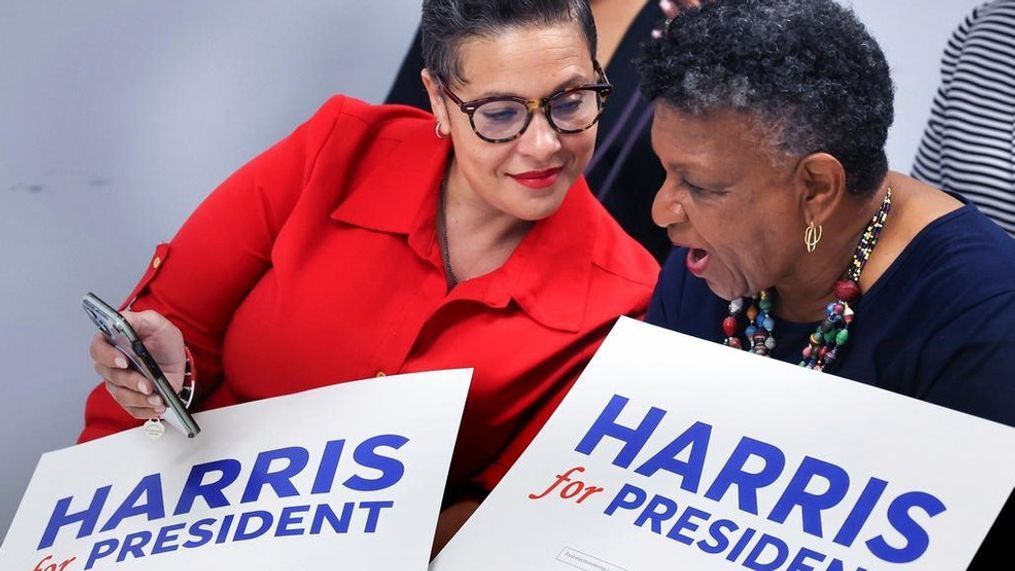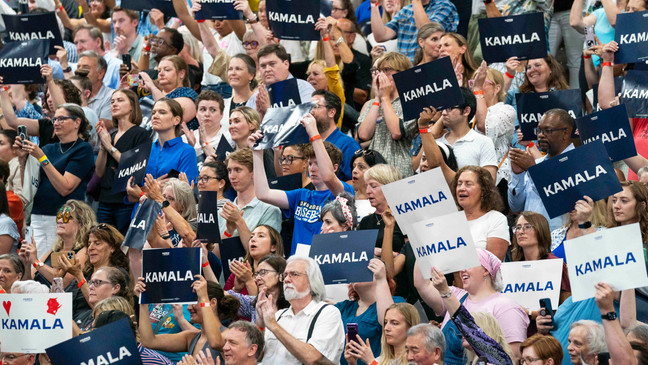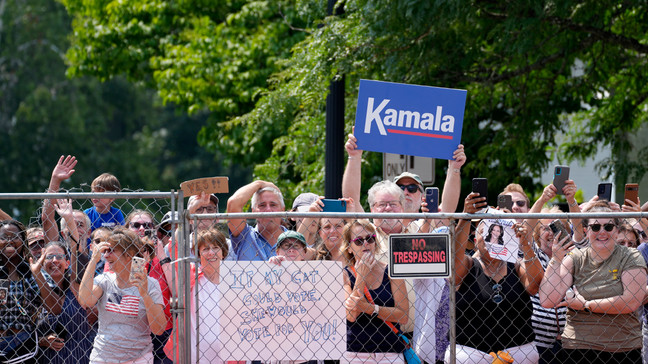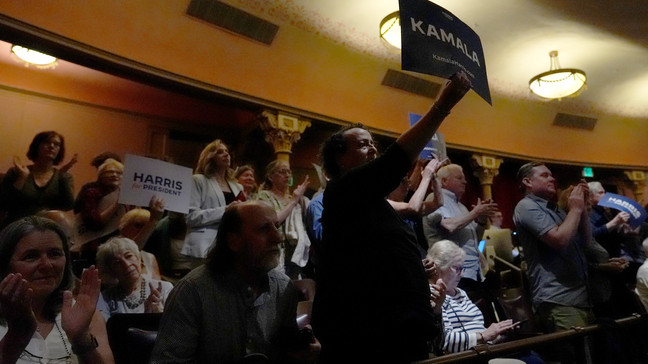Zoom, social media proving to be critical campaign tools
WASHINGTON (TND)– A new kind of retail politics is meeting voters and their devices where they are. With 99 days until Election Day, both the Trump and Harris campaigns have turned to social media and other forms of digital outreach to connect with voters.
The ability to reach a massive audience with the tap of a screen has generated widespread engagement at a fraction of the cost of an in-person event. Last week, a Zoom call for white women supporting Vice President Kamala Harris drew in more than 200,000 participants and raised more than $11 million, according to the host group Answer the Call 2024.
On the other end of the political spectrum, members of former President Donald Trump's family engage hundreds of thousands of supporters with their podcasts "Triggered with Donald Trump Jr. " and "The Right View with Lara Trump," which are posted on video sharing platforms like YouTube and Rumble.
According to an Ipsos poll conducted in May, 15% of Americans said social media was their main source of news over the past month.
“The use of social media for a candidate and campaigns are a necessary evil right now, where they know this is where a lot of their voters are, that you can get a message out incredibly quickly, incredibly directly and for much, much cheaper rates than what we see on campaign advertising on TV," said Casey Burgat, the Legislative Affairs program director at George Washington University.
Since becoming a presidential candidate, Harris has joined TikTok. Over three days, she's made five posts, each with millions of views. One featuring *NSYNC's Lance Bass got more than 38 million views in two days.
“Hey Kamala, what are we gonna say to Donald Trump in November?" Bass asked Harris in the TikTok. "Bye, bye, bye!" Harris replied, cuing the song of the same title.
Trump is also on TikTok, posting just seven times since June 1. His latest video features YouTuber and boxer Jake Paul with a voiceover saying "POV: 100 days left before President Trump delivers another knockout." Trump's campaign has an X profile, but the candidate mostly sticks to Truth Social, which is owned by Trump Media and Technology Group.
To Harris, 59, and Trump, 78, TikTok is a prime platform for reaching young voters, if not to talk about the issues, to at least show that they're likable.
“Facebook, we know has transitioned into the elderly, that’s why we see conservatives on there. We know that Twitter (X) has become across the board a different platform than what it was even two years ago, so people are looking at different avenues to reach voters who don’t already agree with them, and TikTok’s that new frontier," Burgat said.
Campaigns' approaches to social media go beyond the candidate. In a memo detailing the party's national strategy, Democratic National Committee chair Jamie Harrison describes how they're training grassroots supporters to be effective communicators online.
"(F)rom sharing content in our relational organizing app Reach; to creating organic graphics, memes, and TikToks; to hosting trainings to equip volunteer canvassers with the tools to become content creators activating their communities on platforms including WhatsApp, TikTok, YouTube, Facebook, and Discord," Harrison said.
With great reach comes great risk. Misinformation and deep fakes have proliferated at an uncontrollable rate and no platform has perfected a method for removing this kind of content.
On Friday, X owner Elon Musk shared a video that used an artificial intelligence voice-cloning tool to imitate Harris' voice saying disparaging things she did not say in real life. Musk's post did not include a disclaimer that it was generated with AI.
“We know that misinformation can not only be doctored, but it spreads ten times faster than truth," Burgat said.“Campaigns know they must be out there, they know they must be communicating on these mediums, but they also know that its subject to being altered, doctored and then just outright wrong."




